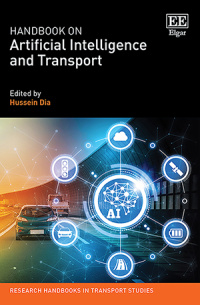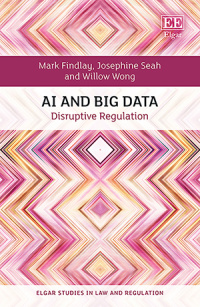
Hardback
Research Handbook on Human Resource Management and Disruptive Technologies
This comprehensive and judicious Research Handbook examines the fundamental influence of the emergence of contemporary disruptive technologies, including artificial intelligence, online platforms, the internet of things, and social robots, on Human Resource Management (HRM).
More Information
Contributors
More Information
This comprehensive Research Handbook examines the fundamental influence of emerging disruptive technologies, such as artificial intelligence, online platforms, the internet of things, and social robots, on Human Resource Management (HRM).
Bringing together an array of interdisciplinary experts, this erudite Research Handbook analyses the HRM challenges posed by disruptive technologies and develops practical propositions to counteract them. It discusses the navigation of ethical dilemmas, human rights and digital governance in HRM, consumer value in the digital economy, and technology-driven changes in HRM practice. Featuring case studies on talent management in multinational enterprises, the engagement of digital generations with contemporary technologies, and the introduction of cobots in the manufacturing industry, contributors expertly explore current discussions and future directions for scholarly research.
Promoting a better understanding of critical perspectives on HRM and disruptive technologies, this Handbook will be a vital resource for students, scholars and researchers in business analytics, information systems, knowledge management, organisational innovation, technology, and ICT. It will also provide valuable guidance on the effects of emerging technologies for HR and leadership practitioners.
Bringing together an array of interdisciplinary experts, this erudite Research Handbook analyses the HRM challenges posed by disruptive technologies and develops practical propositions to counteract them. It discusses the navigation of ethical dilemmas, human rights and digital governance in HRM, consumer value in the digital economy, and technology-driven changes in HRM practice. Featuring case studies on talent management in multinational enterprises, the engagement of digital generations with contemporary technologies, and the introduction of cobots in the manufacturing industry, contributors expertly explore current discussions and future directions for scholarly research.
Promoting a better understanding of critical perspectives on HRM and disruptive technologies, this Handbook will be a vital resource for students, scholars and researchers in business analytics, information systems, knowledge management, organisational innovation, technology, and ICT. It will also provide valuable guidance on the effects of emerging technologies for HR and leadership practitioners.
Contributors
Contributors include: James Arrowsmith, Tanya Bondarouk, Robin Bauwens, Robert Jan Blomme, Antoine Bujold, Melina Bumann, Laura Cortellazzo, Martine Coun, Antonella Delle Fave, Katja Einola, Celia Fernández-Aller, Marylène Gagné, Johannes Gartner, Pierrette Howayeck, Marleen Huysman, Ali Intezari, Anne Keegan, Violetta Khoreva, ,Alessandra Lazazzara, Kristiina Mäkelä, Jeroen Meijerink, Xavier Parent-Rocheleau, David J. Pauleen, Pascale Peters, Philip Rogiers, Huub Ruël, Jesus Salgado Criado, Sari Salojärvi, Eusebio Scornavacca, Anastasia Sergeeva, Emanuela Shaba, Luca Solari, Melika Soleimani, Frank Stegehuis, Jennie Sumelius, Elmira van den Broek, Vlad Vaiman, Stijn Viaene, Hertta Vuorenmaa, Michael Wasserman, Max Weijers, Sharna Wiblen, Stefano Za




